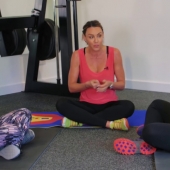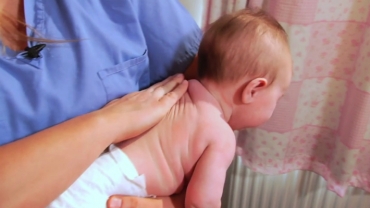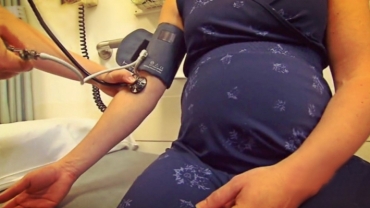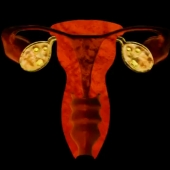What's happening when you're 18 weeks pregnant? At 18 weeks, your little chick is about the same size as the chicken breast on your dinner plate, about five inches long and five ounces in weight.
But don’t let his small size fool you. There are big goings-on in that little body of his this week. Meconium, your baby’s first poop, is slowly starting to accumulate in his bowels. If your baby’s a boy, his prostate gland is forming. And both girl and boy babies now officially sport finger and toe prints. These tiny swirls and wrinkles mark your baby as uniquely himself from here on out, though there’s probably little need to tell you how especially unique your baby is!
Under major construction now is your baby’s nervous system. That’s the network that coordinates your cutie’s every move. Right now your baby’s brain, spinal cord, and nerves get a boost from myelin, a substance that coats the nerves and speeds up the time it takes for messages to travel between nerve cells. Myelin also helps baby’s nerves form more complex connections, enabling your teeny mover and shaker to perfect more intricate moves such as sucking a thumb, clasping hands, and curling his fingers around the umbilical cord.
And guess what, momma! Somebody’s listening to you. Baby’s ears have arrived at their final destination – the sides of his head – and the tiny bones inside the inner ear have hardened, allowing your baby to hear some sounds, including the sweet sound of your voice! Now hear this. Thanks to all the time they spend listening to it in utero, studies show that babies are able to identify their momma’s voice right after birth. Keep that in mind the next time you serenade your womb with your lullabies – or rock out in the shower. Your little one is all ears!
Did You Know?
Estimates of severe depression in pregnant women run as high as 25%. Depressed women are more likely to smoke and to use alcohol or other drugs during pregnancy. They also show decreased social behavior, emotional withdrawal, and excessive concern about their parenting abilities, although they are less likely to: visit the ob-gyn, comply with prenatal advice, or take prenatal vitamins.
- 195 views













